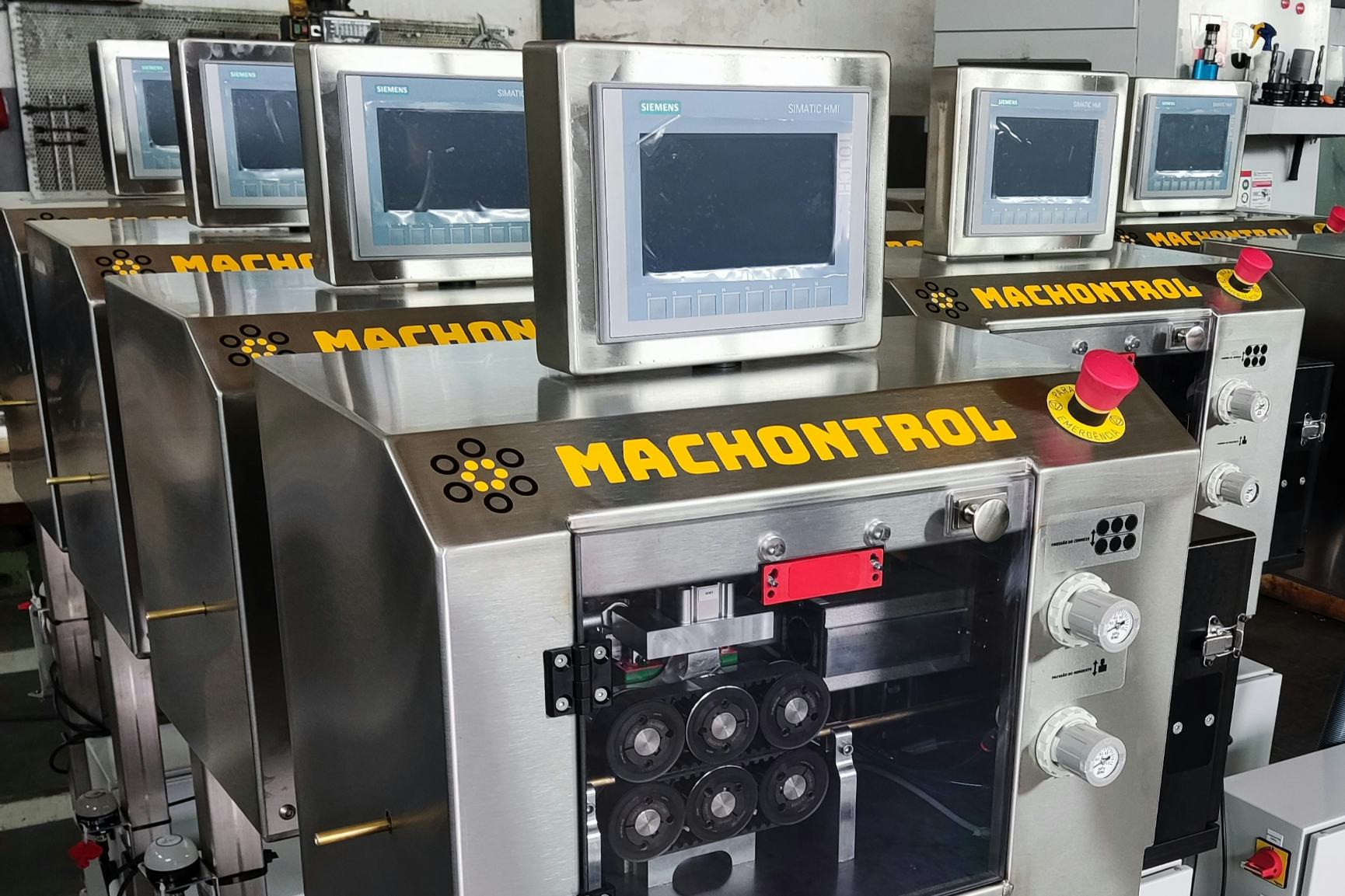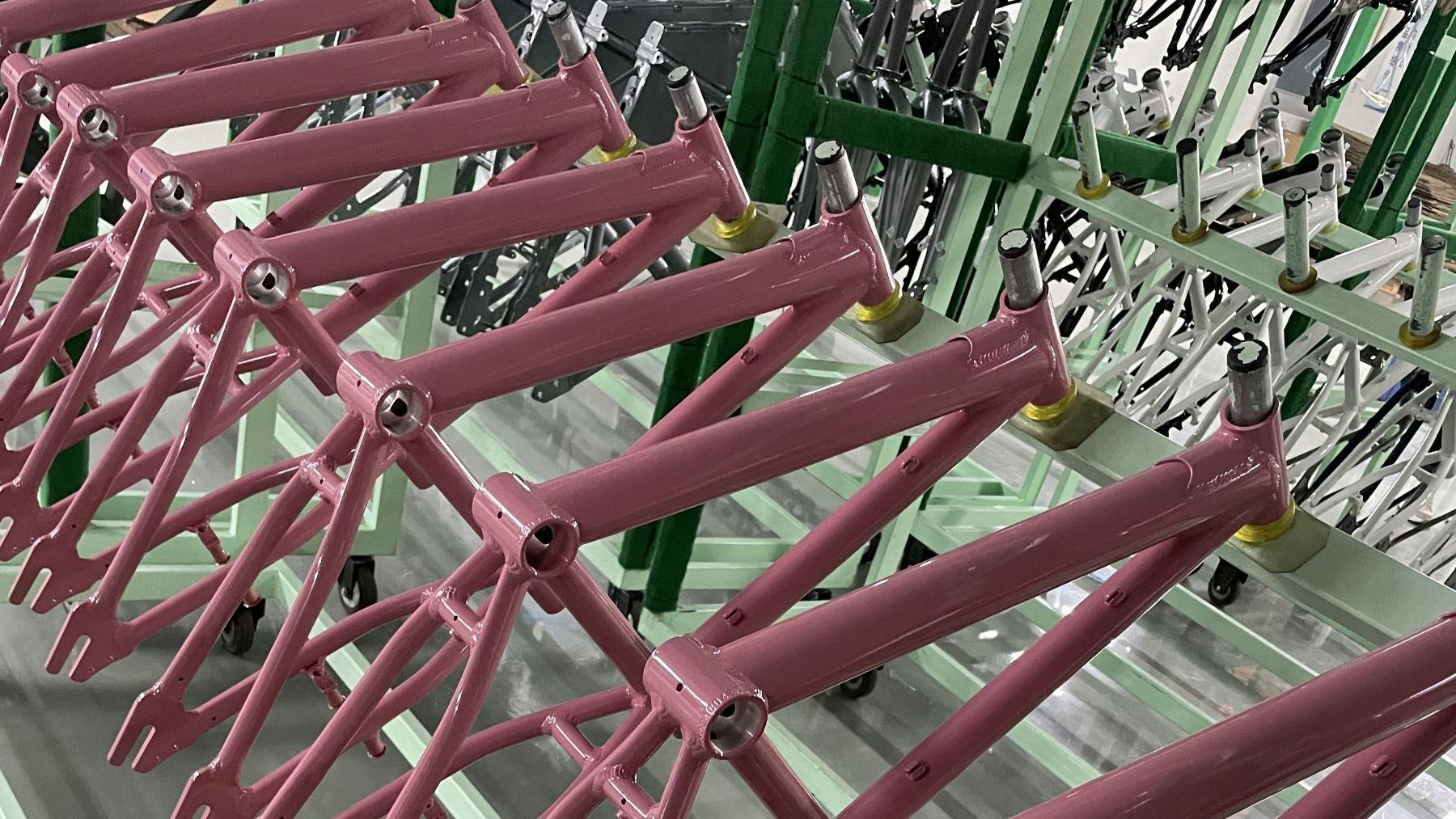In the pursuit of heightened productivity it is equally important not to compromise on safety and ease of use. With the changing dynamics of the workforce, the need for intelligent equipment that does not depend on specialised operators is also becoming increasingly evident. Let's delve into how these factors intersect and why more factories are turning to advanced machinery for solutions.
Efficiency: the key to productivity
Efficiency lies at the heart of productivity. With efficient machines, factories can streamline production processes, minimise waste, and optimise resource utilisation. Investing in efficient machinery can significantly enhance output without sacrificing quality. Also, efficient machines often boast faster cycle times, allowing factories to produce more in less time—a critical advantage in today's fast-paced market.
While productivity is a top priority, safety should never be compromised. In an environment where heavy machinery and high-speed operations are the norm, ensuring the well-being of workers is paramount. By prioritising safety, factories not only protect their workforce but also minimise costly disruptions and downtime caused by workplace incidents.
Ease of use: empowering every operator
In an increasingly diverse workforce, it's essential to design machines that are intuitive and user-friendly. Complex controls and specialised training requirements can pose barriers to productivity. Therefore, modern machines are designed with simplicity and ease of use in mind. Intuitive interfaces, touchscreen controls, and guided operation features enable operators of varying skill levels to operate machinery effectively. By eliminating the need for specialised expertise, factories can optimise labour utilisation and adapt quickly to changing production needs.
The rise of intelligent equipment
As technology continues to advance, the demand for intelligent equipment is on the rise. Intelligent machines can analyse data in real-time, optimise production schedules, and even predict maintenance needs—ultimately driving productivity to new heights. Furthermore, intelligent equipment is designed to adapt to changing production requirements, reducing the reliance on specialised operators and enabling factories to stay agile in the face of uncertainty.

Cable housing cutting machine
At the core of Machontrol's Cable Housing Cutting Machine lies advanced technology driven by servomotors, ensuring precise and consistent cuts with every operation. This cutting-edge mechanism enables the machine to effortlessly cut through various cable materials, delivering flawless results with a smooth and polished finish. Manufacturers can rely on the machine's exceptional accuracy to meet the most stringent quality standards, reducing waste and optimising production processes.
This machine offers cost-effective operation, making it an ideal investment for manufacturers seeking to optimise their production processes. The machine's low cost per cut maximises cost savings over time, enhancing the overall profitability of manufacturing operations. Designed for reliability and longevity, the Cable Housing Cutting Machine boasts low maintenance requirements, minimising downtime and maximising operational efficiency. With robust construction and quality components, the machine delivers high performance even under demanding production conditions, ensuring uninterrupted workflow and consistent output.
Enhanced autonomy with recipe creation
One of the standout features is its ability to create and execute recipes autonomously. With this innovative functionality, manufacturers can program the machine to cut cables according to specific assembly requirements, eliminating the need for manual intervention and streamlining production processes. Whether assembling a single model or multiple variations, the machine can autonomously execute cutting tasks in the right order, ensuring efficiency and accuracy in every operation.

Tyre inflation machine
Machontrol understands the importance of precision in tyre inflation. That's why its Tire Inflation Machine features a user-friendly interface that allows operators to set and monitor tyre pressure with ease. With a built-in pressure gauge, the machine ensures that tyres are inflated to the exact specifications required, contributing significantly to the overall quality of the assembled bike. By maintaining precise tyre pressure, manufacturers can guarantee a safe and enjoyable riding experience for end-users.
With its combination of speed, accuracy and ease of use, the machine redefines tyre inflation, making it faster, more precise, and more efficient than ever before. Experience the future of tyre inflation with Machontrol's innovative machine and take your wheel assembly process to new heights of productivity and quality.
Looking ahead: the future of manufacturing
In the quest for productivity, efficiency, safety, and ease of use are non-negotiable. More factories are recognising the importance of investing in advanced machinery that ticks all these boxes. As the manufacturing landscape evolves, intelligent equipment that does not depend on specialised operators will become increasingly indispensable. By embracing this shift and adopting cutting-edge technologies, factories can position themselves for success in an ever-changing market.
In conclusion, the journey towards enhanced productivity begins with efficient, safe, and user-friendly machines. By prioritising these factors and embracing intelligent equipment, factories can unlock new levels of efficiency and competitiveness. In the age of Industry 4.0, the factories that thrive will be those that embrace innovation and invest in the tools of tomorrow.
This article is sponsored by Machontrol






